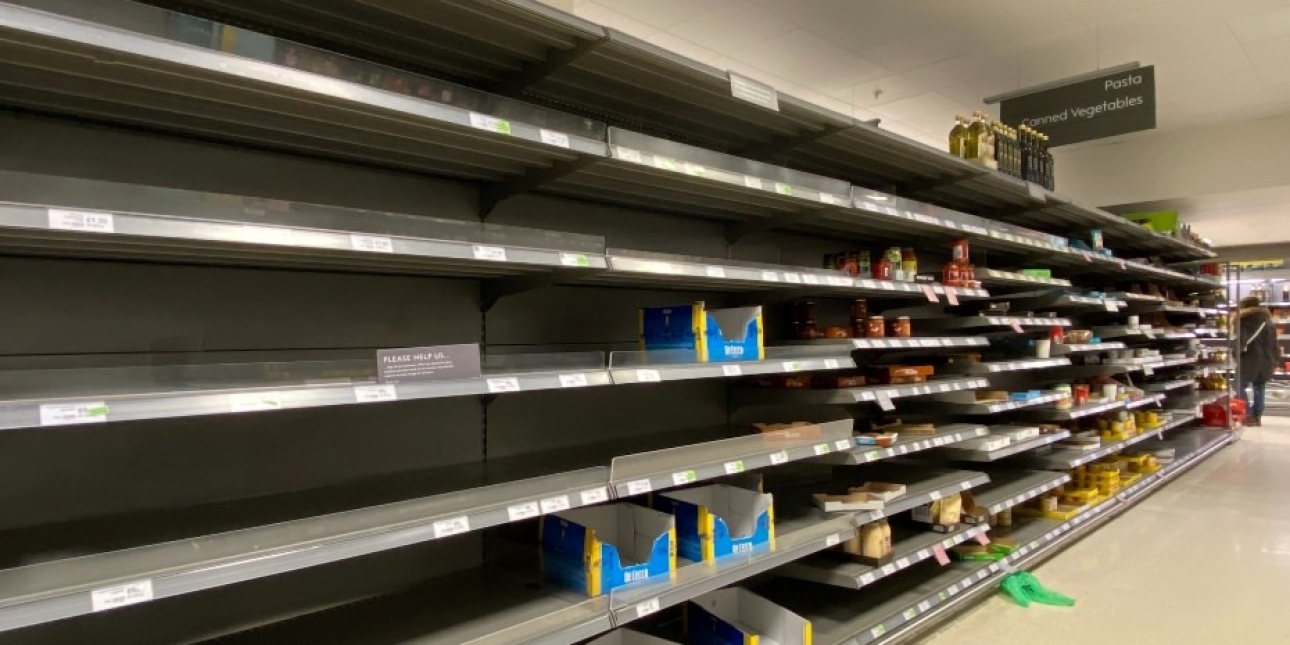PUBLIC RELATIONS
Monday 11th October 2021
Reputation Management in the Public Eye
For many, it is difficult to glance at the front pages on newsstands without feeling a sense of doom and despair.
Labour shortages are causing issues with supply chains, there are pictures of empty supermarket shelves, the cost of living is soaring, and the army has been brought in to help with fuel shortages seeing chaos at the pumps. The National Grid has even warned of power cuts in the winter, with international broadcaster CNN reporting that the gas price crisis will rage in the UK and Europe.
The energy crisis in particular has seen several suppliers sadly going bust and Ofgem – which says energy bills could rise by 30% in the UK in 2022 – has admitted many more could follow suit in the coming months, with some of these struggling businesses being 'named and shamed' in the media.
As with any crisis, it is not just the industry as a whole the media focuses upon, but the individuals and companies who are involved. This spotlight can be unwanted – particularly as an organisation deals with operational challenges. Yet, it is vital business leaders do not to overlook the importance of effective communication. Whilst communication cannot fix all areas of a crisis, a solid strategy, based on substance and decisive action, will help mitigate problems as well as provide clarity and understanding which can lead to support.
Anticipating and preparing for crises by devising a response plan is always the best course of action. At the very least, this should outline the crisis response team, spokespeople and suggested messaging and responses for a variety of scenarios.
However, even in times of turmoil and change, companies are still today entering crisis situations without any form of preparation. When this happens – all is not lost. There are still a number of a business should prioritise to manage its reputation when thrust into the public eye.
Know exactly who is doing and saying what
Knowing who is doing what in a crisis period is fundamental. People need a clear set of responsibilities and reporting lines in order to work quickly and efficiently. Decide whose job it is to write statements, who your spokespeople are, who needs to handle social media and whose responsibility it is to sign off documents. If your organisation doesn’t already have a crisis response team in place, waste no time in remedying this.
Get your facts straight
Before you say anything official to anyone, find out as much as you can about the facts of the situation. If it’s an operational disaster unfolding this might not be much, but whatever you say must be 100% accurate. Never speculate – this can land you in deeper trouble further into the crisis. If you don’t know the answers, then reassure your stakeholders you and your team are seeking them.
Pinpointing stakeholders
Understanding audiences you need to reach during an emergency is one of the first steps of a crisis response. There are many potential audiences who will want information during and following an incident, each with its own pressures and needs. Once you’ve identified your stakeholders, you’ll need to pinpoint the owner of each of these relationships and entrust them to manage the communications. Delegation is key here to ensure no stakeholder is left out of the information loop.
Establishing messaging
Once the crisis response team has gathered all the facts, this should help you to agree on how to frame a response. Holding statements should go up within two hours, with further information shared both internally and externally as soon as you have it. For ongoing crisis situations such as the current fuel crisis, frequent communication is key. Remember – the best way to handle any difficult situation is with transparency. Honesty, humility and humanity are three factors to keep front of mind when drafting your messaging. Media training is often overlooked, but is a must in crisis situations.
Don’t forget your own people
One thing which often goes forgotten in a crisis is internal communications. Staff and colleagues should be kept in the loop from an early point. When things aren’t going well externally, it’s important to keep your own people on your side. Supporting your colleagues may be as simple as consistent internal communications, but it may also be necessary to refresh their memories about your media policies, particularly in the event of a headline-grabbing or sensitive incident.
Consider external help
For companies going through any major reputational issue, such as the energy companies currently under huge media pressure, there should be no hesitation in seeking external support. Working with a specialist crisis team will not only alleviate pressure from the internal response team, it will free up time and resource into addressing operational challenges.
An agency can add a valuable, objective point of view to your approach. Most importantly, is that they should be informed of and worked into your crisis communications strategy as soon as possible.
Photo by John Cameron on Unsplash
